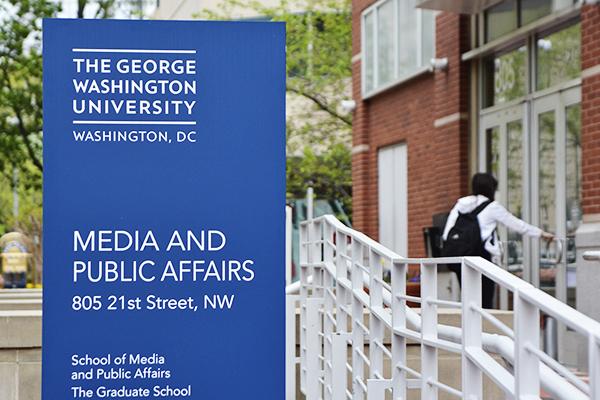The School of Media and Public Affairs will emerge from University-wide budget cuts relatively unscathed, the school’s director said last week.
SMPA Director Frank Sesno said the school, one of the more selective programs at GW, won’t see its budget directly impacted by University-wide financial woes. With one of the few graduate programs in which enrollment has increased, the school has been less affected than some of its more-stressed counterparts, Sesno said.
Still, he said the school is taking on some cost-cutting measures, including holding back on hiring for two open faculty positions until next year at the earliest. He said he hopes to fill the spots with visiting professors.
Overall, though, he emphasized that the school will be spared from the widespread budget cuts.
“We’ve always operated within our budget. We’re very, very diligent with that,” Sesno said. “So it’s very important we maintain that discipline and I think that’s one of the reasons why we’re a healthy program.”
GW is roughly 75 percent reliant on tuition to fund the daily costs of running the University and has slashed budgets to make up for recent enrollment declines. Graduate and professional enrollment has dropped by about 1,200 students across the University, and to make up for the loss, faculty and staff are planning new academic programs and decreasing costs across campus.
The number of students enrolled in the school’s master’s program has increased by about 40 percent, from 27 students in 2009 to 38 in 2013, according to the Office of Institutional Research & Planning. The global communication master’s program, a dual program between SMPA and the Elliott School of International Affairs, nearly doubled in size, from 28 to 55 students over the same time period.
Albert May, an associate professor of media and public affairs, is retiring at the end of this semester. May said in an email that associate professor Cheryl Thompson will be taking his place when he leaves, and that she was hired in anticipation of a retirement.
Multiple professors in SMPA declined to comment.







